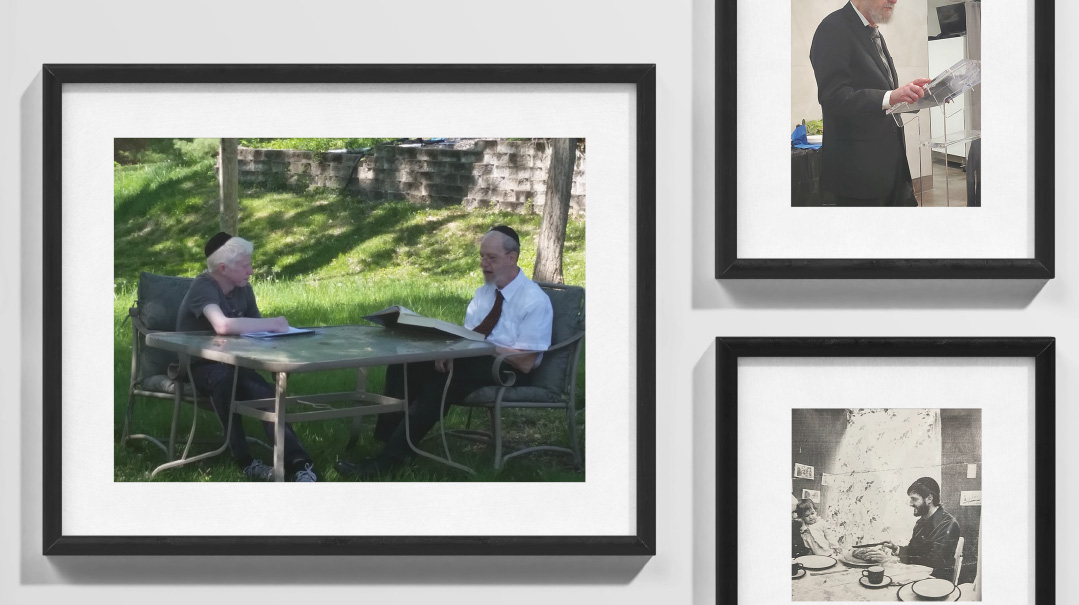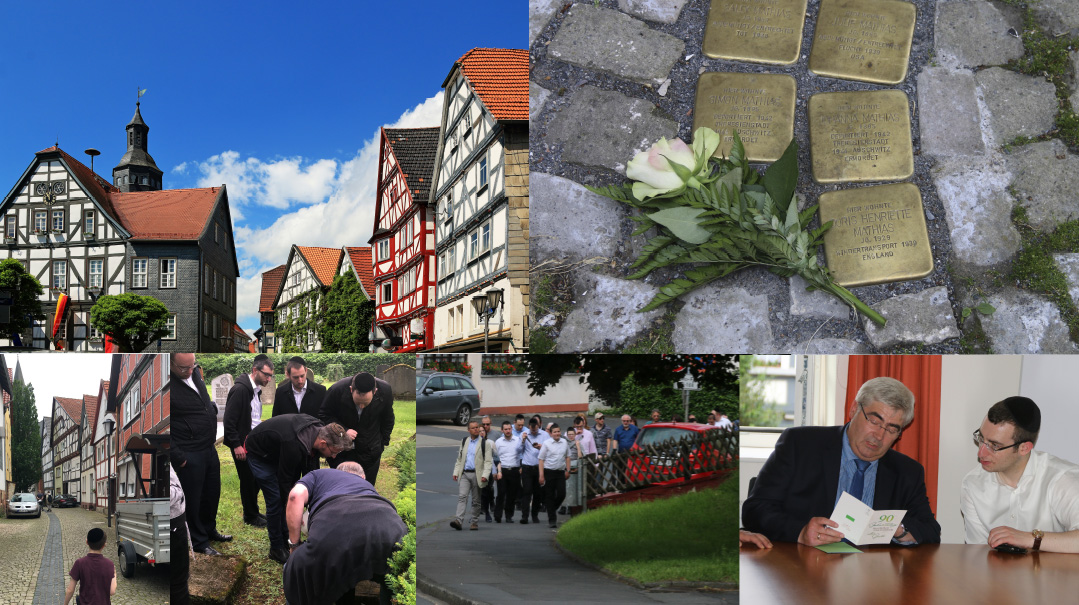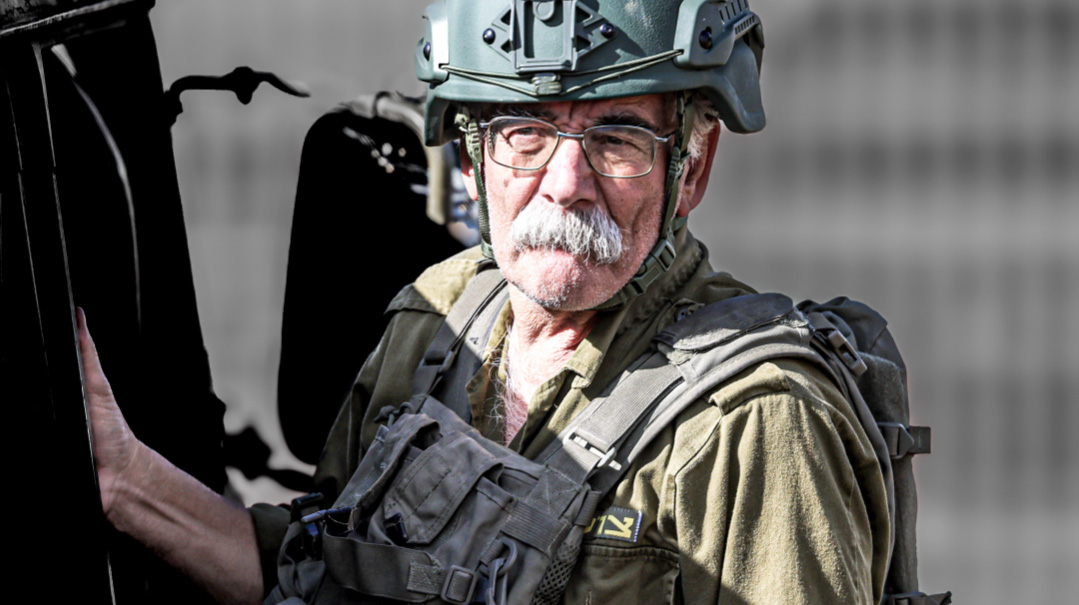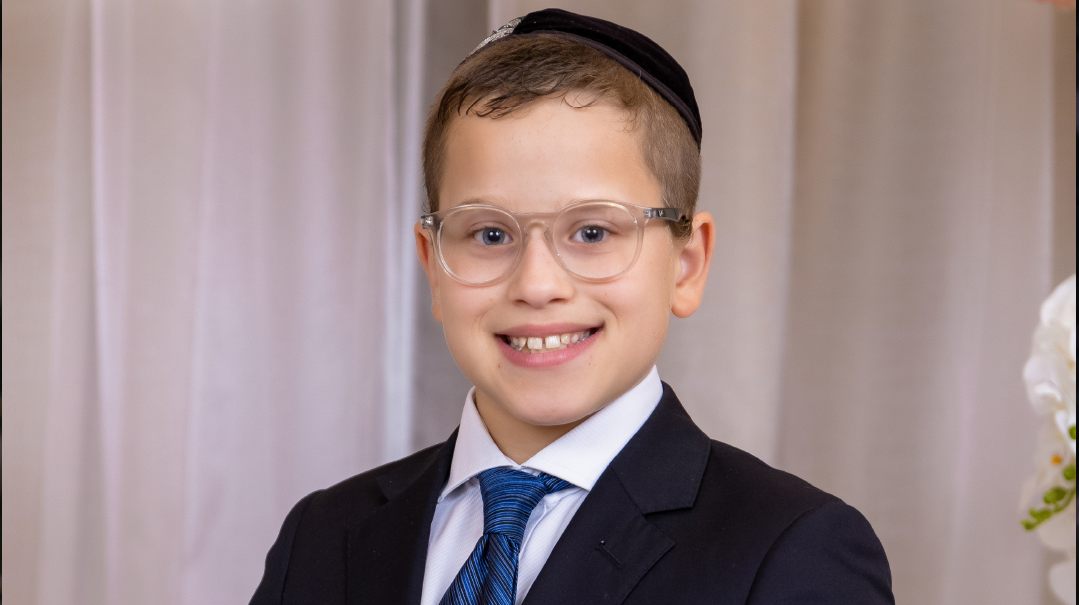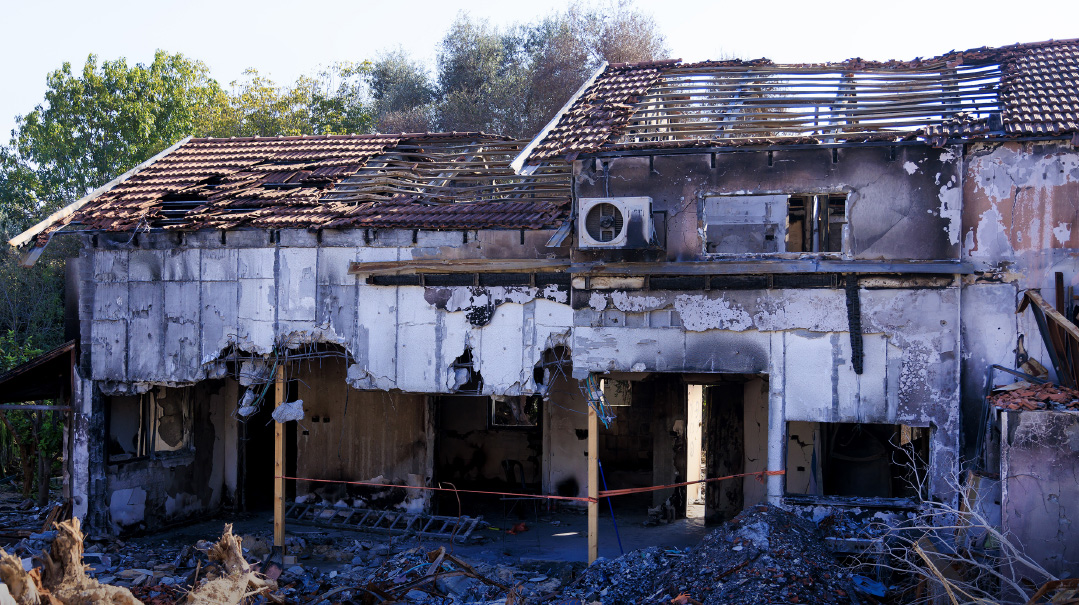At Every Juncture
| February 25, 2025A talmid’s unconditional adherence to Rav Mattisyahu Salomon, the gadol who became his guide

I
was a 17-year-old bochur when I first met Rav Mattisyahu Salomon ztz”l, who was then serving as the mashgiach ruchani of the Gateshead Yeshiva.
I couldn’t have imagined then the impact he would have on my life, my marriage, my family, and my eventual career. But I did realize immediately that this was a rebbi who cared deeply about every talmid, that this was the person with whom I could fulfill the maxim “asei lecha rav.” I had found my rav, my rebbi.
In yeshivah, Rebbi took me under his wing as a father would for a child, and our connection stayed strong even after I left Gateshead. After some time in Israel learning and training in kiruv, I found myself at a crossroads and decided to come home to date. When I reached out to Rebbi though, he encouraged me to put dating on hold until after Pesach to give myself time to settle in. He emphasized that stability is crucial for establishing a strong foundation for marriage.
He also advised me that no matter what path I took, I should continue to learn Torah for at least half an hour every night. He didn’t pressure me to stay in learning with fiery speeches and foreboding predictions, nor did he give up on me as another lost soul. He threw me a lifeline, a connection to the world of Torah, one that he knew I had the ability to grasp and hold on to at this stage in my life.
I took his guidance to heart. I committed to nightly learning sessions, which together with the weekly shiur I attended given by the Manchester Rosh Yeshivah, Rav Yehudah Zev Segal ztz”l, indeed helped me feel connected.
B
ack in Manchester, I was asked to become the director and coordinator of Pirchei Agudas Yisroel of Manchester. As I got to know the boys, I soon saw that some of them were struggling with learning and apathetic about Yiddishkeit. In response, I organized extracurricular activities to provide them with a healthy outlet that also built their confidence.
Approximately a year or so later, I felt I could do more; the boys needed teaching and direction and I wanted to establish a yeshivah for them. When I reached out to Rebbi, he gave his approval, on condition that I would personally teach a weekly shiur to the boys.
“The boys will respect your Torah knowledge,” Rebbi explained, “and then they will be receptive to what you want them to achieve in Torah study.” Rebbi’s advice left me marveling again at his understanding of human nature.
The yeshivah, however, didn’t take off just then. (I got married around this time and had to put the project on hold. But the idea of opening a yeshivah for these kinds of boys always lingered in my mind, and 20 years later, my dream came true when I opened one of the first online “yeshivahs without walls” catering to all ages and levels of Yiddishkeit.)
Pirchei was an after-hours project. During the day I worked in sales. However, after about six months on the job, I began to feel the need for something more stimulating. Once again, I turned to Rebbi for guidance.
He advised me to stay put, pointing out the significance of stability, especially in light of the fact that I was in shidduchim.
“Consistency is key,” he advised. “A potential partner needs to see that you’re dependable, not someone who changes jobs frequently.” I was surprised, having surmised he would have encouraged me to grasp new opportunities to develop my mind, but once again, Rebbi’s approach took a much broader view. I resolved to give my job another chance, and stayed at it for two years.
His advice wasn’t always the same. Sometimes Rebbi would encourage me to grasp a new opportunity, allaying my doubts. Sometimes, like this time, he would urge me to stay put and put my ambitions on hold. I learned to trust that he knew what was best for me, and that it always pays to consult daas Torah in cases of uncertainty.
I
entered the dating scene after Pesach and heeded Rebbi’s suggestion to visit a well-known local shadchan. Rebbi also gave me a brachah that I should find my bashert within the year. Indeed, on Rosh Chodesh Adar the next year, around ten months after receiving his brachah, I got engaged. When I took my kallah to meet Rebbi, he smiled broadly. With a twinkle in his eye, he said, “You must have davened hard for her.”
I was touched by his warmth and kindness.
When I shared the news with the Manchester Rosh Yeshivah, Rav Segal’s joy was palpable. However, he offered me a word of advice: “Don’t spend too much time with your kallah until you get married.” I reassured him that Rebbi had given us similar advice.
We were married on Lag B’omer, in 1988, and I felt very blessed and honored that Rebbi agreed to be mesader kiddushin at my chasunah. He was there by my side from the kabbalas panim, and he put ashes on my head before the chuppah. Feeling understandably emotional, I asked him, “What should I think at this moment?” Rebbi responded that I should daven that my home be a place of Torah.
I was taken aback. Rebbi knew I wasn’t deeply involved in Torah study at the time. How could I fulfill such a directive? But Rebbi wasn’t just my guide and mentor; he was my role model for what it meant to be a Torah individual. And at his urging, I started my marriage determined to make my home a place of love, kindness, and a makom Torah.
Rebbi spoke at my wedding, where there were some unaffiliated Jews in attendance. With his remarkable sensitivity and insight, Rebbi touched the hearts of all present, even those without strong Torah backgrounds. He spoke about the remarkable unity of the Jewish people that transcends geographical distances and how we are all connected through our commitment to Torah and our unique relationship with Hashem.
During his powerful speech, I learned the true meaning of emunah in Chazal. Rebbi shared a midrash regarding the pasuk in Shir Hashirim 2:9: “Behold, He is standing behind our wall, looking from the windows, peering from the lattices.” Hashem promises that even though we will be exiled from Eretz Yisrael, He will not leave us. Rebbi went on to explain Hashem’s promise that the Kosel will never be destroyed. In his strong British accent, Rav Mattisyahu thundered, “If the Kosel gets destroyed, I will personally throw Torah away in the rubbish bin!” He paused a minute to let this sink in, then continued. “But I know it will never happen because Chazal have told us it is here for eternity.”
Despite the dispersion of the Jewish People, and all the wars and upheaval that have taken place in the area where the Temple once stood, despite the destruction of all surrounding structures, the Kosel still stands, as promised thousands of years ago. As Rav Mattisyahu explained, as long as this sacred site endures, the promise of Hashem’s everlasting presence and the truth of Torah will endure with it. To this day, my family has shared this devar Torah with many unaffiliated Jews, inspiring them to come back to Yiddishkeit.
O
ur last sheva brachos was in my wife’s native Glasgow. We stayed for Shabbos and left Motzaei Shabbos at 2 a.m. We had a four-hour trip back home to Manchester ahead of us, and I had to be back at work the following day. After filling up on gas, we set off. I locked my door, but my new wife did not, sharing her belief that locking a car door while traveling wasn’t safe. In case of an emergency, she cautioned, a person might have to leave the car quickly.
As we approached the outskirts of Manchester, the accumulated exhaustion of the week’s festivities and the late nights overcame me, and I momentarily fell asleep at the wheel. The car swerved, skidded, and careened right across the highway into oncoming traffic, finally crashing into the barrier fence. Disoriented without my glasses, I tried to restart the car, but my wife urged us to get out immediately.
My side of the car was lodged into the barrier, so we both scrambled out of my wife’s door, which she’d left unlocked. Seconds later, the whole car exploded. The flames rose skyward, and we were left with only a mangled metal frame as a souvenir of our former car. We were in shock. All our wedding presents, money, and belongings were gone. But baruch Hashem, we were alive.
Naturally, we turned to Rebbi for guidance. How should we process this incident? Was it a bad omen for our future? A punishment for some wrongdoing? Ever practical and down-to-earth, Rebbi’s take was simple and not mystical. “Just be careful when driving,” he said.
We felt a mix of reassurance, guilt, and gratitude. We joked about the “crash course” in marriage we’d just received, but I also gratefully acknowledged that my wife’s sage advice actually saved my life that night. (The crash also laid the foundation for my new marriage — I learned that a husband should always listen to his wife!)
R
ebbi was there guiding me at every juncture in my life, both in the bigger things and the smaller ones. Throughout our marriage, we continued to turn to him.
Shortly after my wife gave birth, I wanted to go to a close relative’s chasunah out of town, but Rebbi advised against it. There would be other family chasunahs, he told me. Right now, it was more important to stay and support my wife.
In general, he felt strongly about only doing things with one’s wife’s consent. Later in our marriage, I was offered a job opportunity that would involve a lot of traveling for work. Rebbi cautioned me not to do it unless my wife agreed. He always put the wife’s wishes first.
Another time, in a frightening episode, I joined my boss in his car for a ride home from work. He placed his briefcase on the backseat and started to reverse when a stranger clad in black approached the car aggressively and ordered my boss to leave the car. When he refused, the stranger smashed the side window, seized the briefcase and vanished into a nearby forest.
I found myself feeling very shaken by this harrowing experience. Without hesitation, I reached out to Rebbi. He advised me to recite two kapitlach of Tehillim daily, a practice that I have continued to this day, close to 40 years later.
It was Rebbi who encouraged me to take Rabbi Zvi Zobin’s course in kriah remediation. It was a life-changing move, one that catapulted me into my current career as a kriah and learning specialist, enabling me to help thousands of struggling students get back on track with Torah learning. Baruch Hashem, I have been able to help many students, and even save lives. And all of the zechus goes to Rebbi, whose wisdom and insight pushed me down this path. He sensed that I would be well-suited to this kind of work, when I had no idea myself.
I was distraught when Rebbi passed away. I felt a profound sense of loss as if I had lost a parent. Who would guide me and give me his prudent, thought-out advice? I missed the hugs he would give me when greeting me, the smile that would melt the hardest of challenges.
I learned to find comfort in the words of Shlomo Hamelech: “Dor holech, v’dor ba — one generation passes, and another comes” (Koheles 1:4). This perspective gave me strength. We do not live forever, but the next generation carries on the mesorah, and I knew this is how Rebbi would think.
Over the past year, in honor of Rebbi’s first yahrtzeit in Teves, I dedicated myself to collecting experiences from over 40 years of learning from him. As I watched old recordings and revisited his teachings, it reinforced the enduring connection I still feel. Through my work — whether in education, kosher technology, or writing — I strive to bring his legacy to life, ensuring that his wisdom continues to guide and inspire.
Rabbi Dovid Abenson is the founder and director of Shaar HaTalmud, a yeshivah-based online program that provides comprehensive instruction in kodesh subjects. His latest book, A Talmid’s Journey (Targum Press, 2025) shares his personal encounters with Rav Mattisyahu Salomon. He is based in Lakewood, New Jersey.
(Originally featured in Mishpacha, Issue 1051)
Oops! We could not locate your form.

